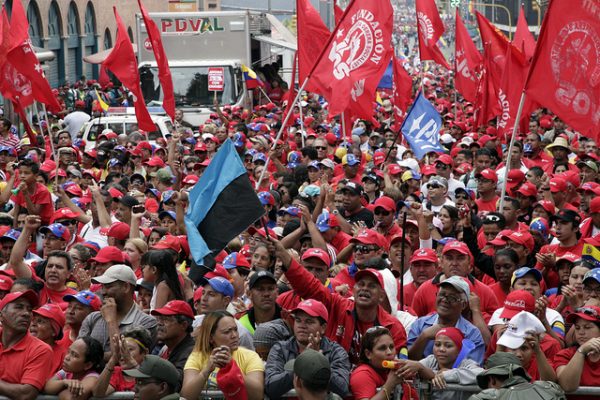
President Nicolas Maduro of Venezuela is doing what many learn at a young age not to do — being a copycat. Since Hugo Chavez seceded power, Venezuela’s current president lacks Chavez’s beloved “Chavismo.” Maduro’s own brand of charisma and populist reform has not connected with the people as he expected, which has led him to use more extreme political measures in the hopes of garnering respect. This has led to unrest in Venezuela, highlighting the instability of charismatic-based politics.
As Max Weber famously described in his theories of social and economic organization, charismatic leaders are often able to create a unique bond with their citizens. But if that charisma fades, it can create instability. This is also evident when there is a transfer of power from a beloved charismatic leader to a new leader.
- Marshall Ganz. 2000. “Resources and Resourcefulness: Strategic Capacity in the Unionization of California Agriculture, 1959-1966.” American Journal of Sociology 105(4): 1003-1062.
Research finds that charismatic leaders are often good at mobilizing people to join social movements, but that the charismatic bond is often short-lived and unable to be transferred to other individuals. When charisma fails to motivate support, leaders often turn to more conventional measures to reach their political goals, which can lead to disenchantment and unrest among the citizenry.
- Dan Slater. 2009. “Revolutions, Crackdown, and Quiescence: Communal Elites and Democratic Mobilization in Southeast Asia.” American Journal of Sociology 115(1): 203-254.
- Kurt Schock. 2005. Unarmed Insurrections: People Power Movements in Nondemocracies. Minneapolis: University of Minnesota Press.

Comments